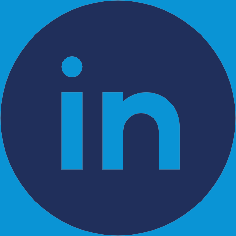Q Indeed the Green Deal will be complementary to the activities you do and the fight against cancer. Having heard from scientists and being a doctor yourself, what would you like to see as the top policies in your Report?
The Plan itself is not a legislative plan, but it relies on many legislative aspects that will be revised or even drafted for the first time after the plan will have been negotiated between the Commission, the Parliament and the Council. For instance, there will certainly be revisions of the directives on alcohol, on tobacco, on health at work. There will be in the frame of the European Pharmaceutical Strategy, revisions of the directives on orphan medicines, on clinical trials. Of course, there will be all the legislative package of the Green Deal. But some of the measures of the plan will just be recommendations, incentives and guidelines to make sure that the Member States are able to upgrade the level of quality of care or diagnosis or prevention.
We are working on the basis of a bibliographic work which was made by the services of the Parliament, we have add and still are having hearings with experts on prevention, on pediatric cancers, on life after cancer, on research, on the environment…etc
Q Our hearings have included a representative of patients associations. So it’s, of course, a very important part of it. As I said, the Member States’ implication is not the same from one part of Europe to another. There are leading States. Clearly France is a leader in health organization. But we, as French people and more globally Southern and Eastern Europe people, have a lot to learn from Northern Europe as far as prevention is concerned. So we have to work together, of course, to make sure that our decisions are evidence based and also to exchange practices and expertise from one country to another. Q It sounds like a very challenging task. How important is prevention and how will you address this issue? Prevention will be a very important axe of our plan. 40% of cancers are preventable by acting on individual habits, tobacco, alcohol, sedentary, bad nutrition, but also on environmental and social exposures. We have to work on education, on training, on environment. These kind of preventions are summarized in the European Code Against Cancer, which is produced by the International Agency Against Cancer, with which we are working very closely. The European level is also the one required to optimize many aspects of the diagnosis and treatment. There are strong disparities in cancer, early detection and screening. In Europe you can see adherence to a prevention program ranging from 6 to 90%. So we really have to work on these disparities. And the goal is to have 90% of citizens being offered a screening program for breast, colon and uterine cancer without forgetting vaccination, because against certain types of cancers, vaccinations of the teenagers and even lower age is very important. Q A key part of prevention is reducing the risk where a much debated argument are harm reduction policies, especially for tobacco. What is your opinion on vaping and harm reduction products? My opinion and the opinion of the Committee, I guess, will be to include these new tools in the tobacco directive and make recommendations. I agree that they are less harmful than tobacco, but I also agree that first we have to make sure that they do not have other types of toxicities. And second, that they are not able to have people not already smoking come to tobacco through the use of these e-cigarettes. So the expertise is still ongoing, but we could no longer ignore these types of tools so we really have to take them into account in the legislative tools. Q So would you say you are in favor of vaping as a reduced risk alternative to smoking? Well, you know, I have a kind of expertise, but I really rely on specific expertise in the domain and they say what you said, that there is less harmfulness, but we really have to be cautious on potential secondary effects. My position would be to go further on evaluation, but include these types of smoking “habits” in our legislative texts. Q Do you think air pollution and environmental factors are sometimes left behind compared to other elements like lifestyles and prevention? It is much easier to correlate an individual habit with the occurrence of a cancer than to correlate an environmental not very much measurable exposure to a cancer. But I think that the the way of thinking has changed, of course, tobacco, alcohol, but nutrition, sun exposure are still very much taken into account. But we should work on other factors. It is not easy, but it will be easier if we do it all together. And of course, since pollution is able to cross the frontiers, we have a medical interest to do it, together. Q What can we learn from the current situation of Covid-19 in terms of cancer treatment? Cancer patients have suffered the postponing of some treatments, especially surgical treatments.They have also suffered from late screening and diagnosis. Like many vulnerable people, cancer patients are experiencing psychological problems, so mental health is concerned. Q Along the same lines, will the Beca Plan look at access to medicine and drug shortages? A.We have already written a report on the initiative of the Parliament, so not a legislative text, but feelings to influence the Commission on shortages. And we have clearly identified cancer drugs as emergencies in the fight against shortages. We will have to organize some kind of stockpiling. The industry will have to change the way it produces. And we are thinking of incentives to have the producers of active substances come back to Europe, because as you may be aware of, 80% of these very simple but necessary products for medicines are made outside Europe, and it’s the same for vaccines. So, yes, we will work on shortages and cancer medicines will be the model, the first treatments to be evaluated. Q A final question on your report. You mentioned BECA Committee has to deal with many issues. If you could pick only one, what would you prefer was the main point? Research Environmental pollution (like air pollution) Prevention and Lifestyle choices Access and treatment It is a very difficult choice, but I would choose research because it is a transferal way of treating all the other points. You can have research on quality of care, on individual habits, on environmental pollution, etc. So I think I would choose research. Thank you very much, this has been hugely informative. Many thanks again to Véronique Trillet-Lenoir for joining us Thank you to our viewers and see you at our next interview with another member of the BECA Committee. For updates on the discussion on the European Cancer Plan please visit our AskaEurope section on www.askanews.it






